Like all mechanical parts, furnaces can encounter problems, especially with components as essential as the electronic igniter. At Hall’s Heating, Air Conditioning & Refrigeration, we often find that a malfunctioning electronic igniter is a common cause of furnace trouble. In this post, we’ll explain what an electronic igniter is, how it differs from traditional pilot lights, and the signs that indicate it might be time for a replacement to keep your central heating working.
Hall's Heating, Air Conditioning & Refrigeration Blog : Posts Tagged ‘gas furnaces’
High Bills? Pressure Problems? Here’s What to Do
Monday, January 4th, 2021
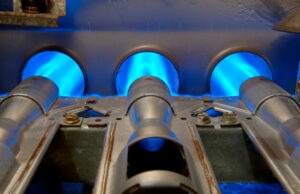 Gas furnaces are not immune to problems that occur over time. In fact, when these kinds of systems are neglected, problems are inevitable. It’s a good idea every once in a while to take a walk through your basement and look at your heating system thoroughly. What is the pressure reading? How high are your heating bills? How comfortable is the air? How frequently are you calling for repairs?
Gas furnaces are not immune to problems that occur over time. In fact, when these kinds of systems are neglected, problems are inevitable. It’s a good idea every once in a while to take a walk through your basement and look at your heating system thoroughly. What is the pressure reading? How high are your heating bills? How comfortable is the air? How frequently are you calling for repairs?
If you’re not happy with the answers to these questions, then this is the blog post for you. Sometimes maintenance or heating repair in Benton, LA can be absolutely necessary for making sure your gas furnace’s pressure is correct and that it’s not burning too much fuel to keep you warm. Keep reading so we can help you cut wasted fuel, eliminate problems, and get your home to feel cozy and warm this January.
Make Your Furnace Last Longer with Furnace Maintenance
Monday, February 17th, 2020
 We often get homeowners that schedule heater maintenance at the last minute when their system is on its way out. While we might be able to help then, we can help much more when you schedule yearly maintenance before problems start to arise. From day one when you buy your furnace, you should invest in a maintenance plan precisely because it can keep your system running for longer.
We often get homeowners that schedule heater maintenance at the last minute when their system is on its way out. While we might be able to help then, we can help much more when you schedule yearly maintenance before problems start to arise. From day one when you buy your furnace, you should invest in a maintenance plan precisely because it can keep your system running for longer.
In light of this information, we thought it would be a good idea to talk about a few of the benefits that can come from furnace maintenance. When you decide to take the plunge and schedule an HVAC maintenance in Shreveport with one of our professionals, you’re giving yourself some leeway in regards to future repairs and the knowledge that your system is functioning as efficiently as possible.
So, let’s get started!
Why Is There a Burning Odor From the Furnace?
Monday, February 18th, 2019
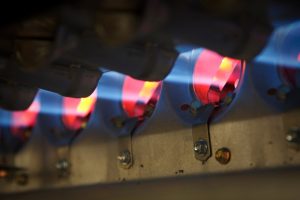 A furnace generates heat, either using gas burners or electrical heating elements, to warm up the air, then uses a blower to send the heated air into the ductwork of a home. As with any heat-generating appliance, there’s some potential for a fire hazard, although this is rare for modern furnaces. However, if you ever notice an acrid burning odor coming from the vents when your home’s furnace is running, it can be alarming.
A furnace generates heat, either using gas burners or electrical heating elements, to warm up the air, then uses a blower to send the heated air into the ductwork of a home. As with any heat-generating appliance, there’s some potential for a fire hazard, although this is rare for modern furnaces. However, if you ever notice an acrid burning odor coming from the vents when your home’s furnace is running, it can be alarming.
Is there reason to be concerned? On some occasions, yes. If you don’t know why it’s happening, please shut off the furnace and call an HVAC professional for furnace repair in Shreveport, LA. Trying to investigate furnace troubles or doing repairs yourself may lead to safety hazards.
Below, we list some of the reasons why you may notice burning odors from your furnace and what to do about it.
Do You Have a Gas Furnace? A Few Things to Keep in Mind
Monday, January 7th, 2019
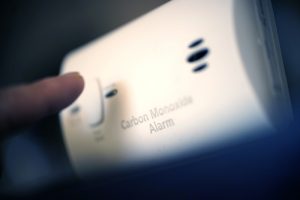 Now that we’ve settled into the winter, the heater in your home will work on a regular basis to provide comfort. Chances are high that the heating system you have installed is a gas furnace—the most popular type of home heating system in the country. A gas furnace is reliable and uses an inexpensive fuel to run.
Now that we’ve settled into the winter, the heater in your home will work on a regular basis to provide comfort. Chances are high that the heating system you have installed is a gas furnace—the most popular type of home heating system in the country. A gas furnace is reliable and uses an inexpensive fuel to run.
However, to get the best and safest performance from your gas furnace, there are a few things to keep in mind.
Checking the Furnace Flue: It Could Be a Lifesaver!
Monday, March 5th, 2018
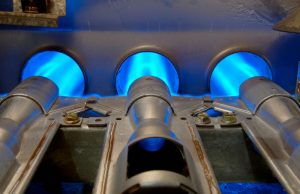
Safety is a vital part of all the jobs we do for our customers. When we fix a natural gas furnace in a house, we don’t just ensure that it will come on, provide heat, and operate at energy-saving levels. We also make sure it runs as safely as possible. Although gas furnaces are built with the same priority on safety that we use in our work, it is possible for the combustion byproducts from the furnace—which include carbon monoxide, nitrogen dioxide, and sulfur dioxide—to accidentally enter living spaces. These are toxic gases and create many serious, life-threatening health hazards.
You’re probably aware of what high concentrations of these gases do. But the safety concerns aren’t only about a large amount of combustion byproducts flooding into a home. There’s also the risk of chronic exposure to low levels. The symptoms aren’t as obvious, but over the long-term can be just as dangerous, especially to infants and the elderly. The main reason for the low-level presence of combustion byproducts is a furnace that is venting poorly.
Atmospheric vs. Sealed Combustion Furnaces: What’s the Difference?
Tuesday, February 28th, 2017
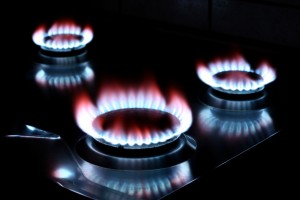 The technology of heating and cooling a home is a field that’s always advancing. When it comes to furnaces, the new technology is designed to meet four goals:
The technology of heating and cooling a home is a field that’s always advancing. When it comes to furnaces, the new technology is designed to meet four goals:
- Making the furnace safer
- Increasing reliability and a reduction in repair issues
- Better indoor comfort
- Improving energy efficiency
Today we’re going to look at the sealed combustion furnace, which is an advance in furnace technology that hits all four of those goals. But first, we have to talk about atmospheric combustion furnaces, the older technology that sealed combustion furnaces aim to replace.
What Is the Big Difference Between How Electric and Gas Furnaces Run?
Monday, February 6th, 2017
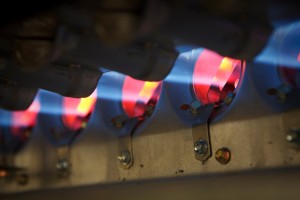 To most people, a furnace is just a furnace. Regardless of the power supply that it uses, a furnace is a device that heats up, then heats up the air, and then sends that air through ductwork to the rooms.
To most people, a furnace is just a furnace. Regardless of the power supply that it uses, a furnace is a device that heats up, then heats up the air, and then sends that air through ductwork to the rooms.
You really don’t need to know much more than this. As long as you know to rely on professionals to take care of annual maintenance for your home’s furnace (make sure you do it every fall) and remember to regularly change the air filters, you can expect your furnace to put in years of great work keeping your family warm.
But a little knowledge can often help, especially when you’re thinking about getting a new furnace. So we’re going to look a bit closer into what makes electric furnaces and gas furnaces different. It’s more than just the type of energy they use!
Carbon Monoxide Testing: Why It’s Important
Monday, December 5th, 2016
Do you use natural gas in your home? Whether you use it for powering appliances in the kitchen, running a furnace, or both, it’s important that you test your home for the presence of harmful levels of carbon monoxide (CO). Carbon monoxide is a byproduct of the incomplete combustion of natural gas (as well as other fuels, but the principle concern in homes comes from natural gas) and it can leak from malfunctioning appliances or become backed up into a home if it isn’t properly vented.
Even homes that don’t rely on natural gas can have CO problems if they have an attached garage: fumes from vehicles can easily enter the living spaces. Other CO sources include kerosene heaters and poorly vented fireplaces.
Warnings about Carbon Monoxide This Winter
Monday, November 14th, 2016
This is an important warning we like to post before the start of each winter season. When the cold weather arrives, you’ll start to use your furnace on a regular basis to keep your household toasty warm. Chances are high that you have a natural gas furnace, which is the most popular type of residential heating system in North America. There are a number of good reasons for this:
- Natural gas is less expensive a fuel source than electricity.
- It’s convenient, piped right into your home.
- It burns cleanly, with few harmful emissions.
- Gas-powered furnaces can provide powerful levels of heat.
But there’s one downside to using natural gas for heat, and it’s the potential for carbon monoxide (CO) poisoning.


